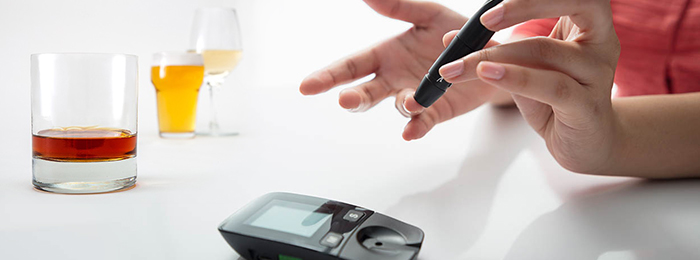For most individuals, having a few beverages is just part of living, whether on an ordinary Friday meal out, a weekend off at an event, or an outing to the bar.
The good news is that having type 1 diabetes does not have to make things any different. However, it would help if you undertook a few considerations to ensure your continued health.
Guide for Alcohol and Type 1 Diabetes
You can now create a plan to proceed since you know how alcohol & insulin interact to know alcohol and type 1 diabetes. These pointers can help you be ready for any event where you could drink alcohol, be it a birthday celebration, a football game, or something else entirely:
- Learn the symptoms of both extremes of blood sugar:
Talk to your friends regarding the effects that alcohol has on people with type 1 diabetes, including how to recognize the symptoms of hypoglycemia as well as hyperglycemia.
Ensure that they can recognize the symptoms of hypoglycemia and that they know to dial 911 right away if they experience difficulty eating or lose consciousness.
Think about sharing the continuous glucose monitor, also called CGM data, with your pals so they can assist you in monitoring your levels.
- The following morning, after consuming alcohol
A glass of water before bed can help maintain nourishment if you drink too much. If your luck is favourable, it could also aid in avoiding morning hangovers. Even if you don’t wake up feeling well, drinking lots of water will still be beneficial.
Moreover, eating breakfast every day will assist you in controlling your blood sugar levels. Drink as much water as you can, especially any sweet (non-diet) beverages, if your sugar level is low, whether you’ve been feeling unwell or are unable to eat.
Check your glucose readings frequently the following day if you have a glucose meter at your residence. You need to be aware of your symptoms to determine whether you are experiencing a hypo since they resemble hangover symptoms.
- Meals in your stomach are broken down more slowly:
Alcohol also hinders the process of breaking down the meal you just consumed. This indicates that your body is breaking down the insulin you might have consumed for that meal when you were intoxicated more gradually than usual. Your risk of dropping low might increase if insulin works on your sugar levels before the meal is broken into blood glucose.
- Consider Your Drinks
Certain alcoholic beverages, including beer and flavoured mixed drinks, include carbs, whereas others do not. Like everything else, if the beverage contains carbs, it will raise your blood sugar.
The fact that wine only contains up to four grams of complete carbs per glass usually amazes people. While this can be a means of enjoying a drink without fretting about your glucose levels rising.
- Eat ahead
Keeping your blood sugar levels under control may be made more accessible by the foods you eat before, throughout, and after drinking.
You might need to obtain the proper mix of healthy fats and protein that helps regulate blood sugar when attending a cocktail hour that only serves appetizers.
As a result, alcohol could have a more significant effect on the amount of glucose inside your blood compared to if you took a couple of drinks of wine along with a substantial dinner.
To decrease the impact of alcohol, consider sipping slowly and switching to a cup of refreshing water after each glass.
- Knowing the functions of the liver
One organ that accumulates sugar like glycogen is the liver. Glycogen is converted into glucose and sent to circulation when blood sugar levels fall.
Alcohol use causes the liver to emphasize its secondary function, that of the body’s detoxification in response to substances it considers poisonous. The liver can’t assist in controlling the level of glucose in the blood at this period.
The insulin you use for managing your T1D continues to work even if your body’s liver fails to perform this function. For a maximum of 24 hours, consuming alcohol thereby raises the likelihood of hypoglycemia.
The amount of alcohol consumed, the rate at which it was finished, the timing of any concurrent meals, and the rate at which an individual’s body metabolizes alcohol all influence the risk.

